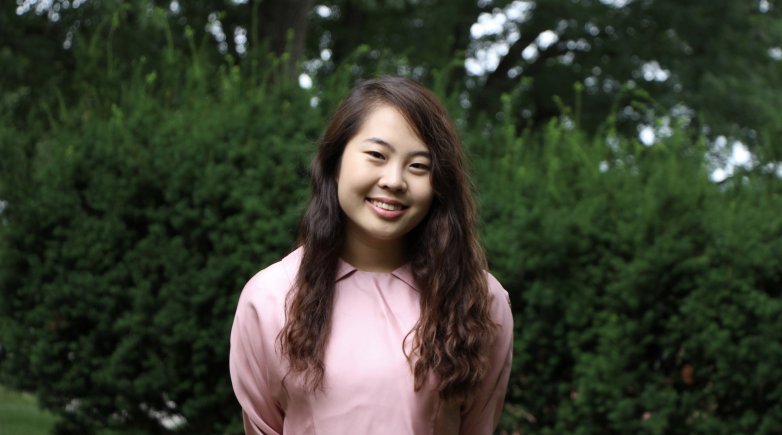Listening to what the students were saying and being given the opportunity to participate was something that really drew me to the school."
Ervin Williams

At the southeastern edge of campus, tucked among the acres of Academy-owned woodlands, sits an armchair-sized chunk of granite protruding from the forest floor. Steadfast in position and appearance for generations, the slab of stone overlooks a stream. In perfect complement and contrast, the meandering tributary remains in constant motion, altering in shape and size as it swells and shrinks by the season.
For Ervin Williams ’20, this natural nook became his refuge, a place to sit and think about that day’s English lesson, write poetry or just clear his head. The senior stumbled upon his serene sanctuary on a Sunday afternoon stroll through Exeter’s network of trails during his lower year. “I decided to go off-road and drag myself through the brush like a rugged adventurer,” he jokes. “I sat down and I was listening to the water and listening to the birds and thought, ‘This is a place I will cherish.’”
Williams’ first steps in his journey to Exeter likewise required him to tread off a well-worn path and explore what lay beyond the immediately visible.
“My [initial] visit to Exeter was the first time I’d had ever been up North,” the West Palm Beach, Florida, native says. “I didn’t see a lot of the avenues in Florida that would allow me to achieve what I wanted, so having this ability to go to Exeter and really find who I am and what my passions are was awesome.”
It was on that trip that Williams sat in on instructor Willie Perdomo’s English class as they discussed Shakespeare’s Hamlet. He still recalls “Mr. P” encouraging him to contribute to the conversation as the class dissected the play’s legendary “To be, or not to be” soliloquy.
“Listening to what the students were saying and being given the opportunity to participate was something that really drew me to the school,” Williams says.
Just a few months later, as an enrolled student, Williams once again found himself being encouraged to express himself by Perdomo, now his adviser. Bonded by their mutual love of poetry, the two hit it off.
“Mr. Perdomo really become a father figure to me,” says Williams, using a phrase he does not take lightly. When Williams was 3 years old, his father died.
“Mr. P taught me that to truly know yourself is one of the greatest things that you can ever accomplish,” Williams says. “Teaching me how to be a better man and be a better student is something that I’ll never forget.”
In his four years, Williams pursued what can only be characterized as a holistic Exeter experience, playing as a lineman on the football team, honing his musical craft on piano and as a rap lyricist, and serving as a proctor in Peabody Hall.
Teaching me how to be a better man and be a better student is something that I’ll never forget."
Williams was also a regular in the Office of Multicultural Affairs, developing a similar paternal bond to the one forged with Perdomo with deans Sami Atif and Hadley Camilus.
“I found solace in OMA,” he says. “It’s been integral to my success and survival at Exeter.”
In the wake of the recent string of killings of Black people at the hands of police, Williams has relied upon the guidance of his mentors on campus, conversations with his peers at the virtual Harkness table and reflection about his own life experiences in an attempt to make sense of the senseless. Williams says his reflex is to get out in the world, to start doing, to affect what he can affect.
“I’m most concerned about trying to make a change that will last, especially for my children and my children’s children, versus expressing anger that won’t lead to justice,” he says. “It doesn’t help if we deepen these wounds or if we decide to not address them at all.”
Williams has already taken steps toward meaningful change. He’s currently working with the Florida Education Fund and the National Urban League to develop a program that aids inner-city, underprivileged students by connecting them with opportunities at schools like Exeter.
With a foundation built on a bedrock of varied experiences, meaningful discussions and lasting relationships, Williams flows on, set to attend Wheaton College in the fall and pursue a degree in law. With the time on campus in his senior year cut short, he wasn’t able to visit his hideout in the Academy Woods one final time as a student.
“Unfortunately, I didn’t get to say goodbye,” he says. “But I plan on coming back next year and taking my time down that trail.”
— Adam Loyd
Editor’s note: This article first appeared in the summer 2020 issue of The Exeter Bulletin.


